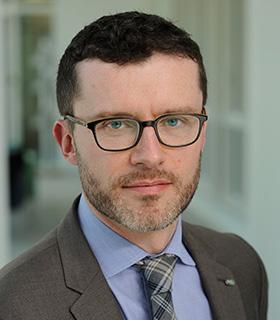
3 minute read
Single Risk Committee
Christian Hendriks
Christian Hendriks
Advertisement
Chair of the Single Risk Committee Company: Credendo – Single Risk
The Single Risk committee will focus on the new and the continuing issues of 2020. Unsurprisingly, the matter of great concern is the coronavirus outbreak and its potential impact on our industry and the global economy. A large number of international experts consider that this crisis will leave a lasting imprint on the world economy, causing permanent changes in regards to one-time responses brought by governments and individuals.
Even if it was not a total surprise, I think, most of us were taken aback by the extent and the quickness of the general lockdown in Europe. Quickly, the members of the SR Committee have expressed the wishes to maintain exchanges of views by video conferences on a regular basis to monitor the trajectory of the markets, with specific interests on Asia situation, potential loss experience and the demand side at first.
The very good thing is that the single risk insurance market has continued to underwrite risks, experiencing a rise in demand, partly fuelled by banks seeking to reduce their risk exposures. The simultaneous oil crisis has also driven an increased demand for coverage. Our industry, once again, has remained open for the business while adopting approach that is more cautious. Six months later after the beginning of the Covid-19 crisis, the

members reported that even quality of risks has been improved due to the adjustments done by the insurance buyers. This said, we continue to monitor sectors and claim environment evolution, given that the outlook will be certainly less gloomy. Our market is expecting a time lag in the consequences of the outbreak and its cumulative economic costs. The first reality is that the number of fraud cases has increased, but the market does not see any direct correlation with the global pandemic. Any crisis is a revelation, in many ways, of the structural environment and the current trends in force; it may incurve trends, accelerate, or amplify them like our digital behaviour now, especially with the remote work. There is much to be done to understand long-term implications and make the adequate responses. Our committee keeps also close eyes on all governmental support schemes, although they are not concerning the single risk business but the short-term credit insurance so far. The relationship with banks will become also a matter of concern, as banks became in the last years a major provider of business.
This leads us inevitably to the regulatory environment where changes are expecting. Put on the agenda by my predecessors, the capital costs remains topic of high importance with the adaptation of Basel IV, which is underway, and the forthcoming EU regulation on minimum loss coverage for non-performing exposures. Crisis after crisis, we have stronger arguments to put forward on the value of trade credit insurance.
Last but not least, Brexit still remains on the horizon: the transition period will end up at the end of 2020, and new rules will enter into force from January 2021. With this uncertain time ahead involving a market that has historically played an important role in our industry developments, we have to be aware of the changes and find out how to deal, collectively, with them.
To conclude, I am tempted to say that in this uncertainty as usual environment, I am happy to pursue this thrilling experience at the ICISA with my pairs to try to give meaning to multifaceted challenges in a very friendly atmosphere.






